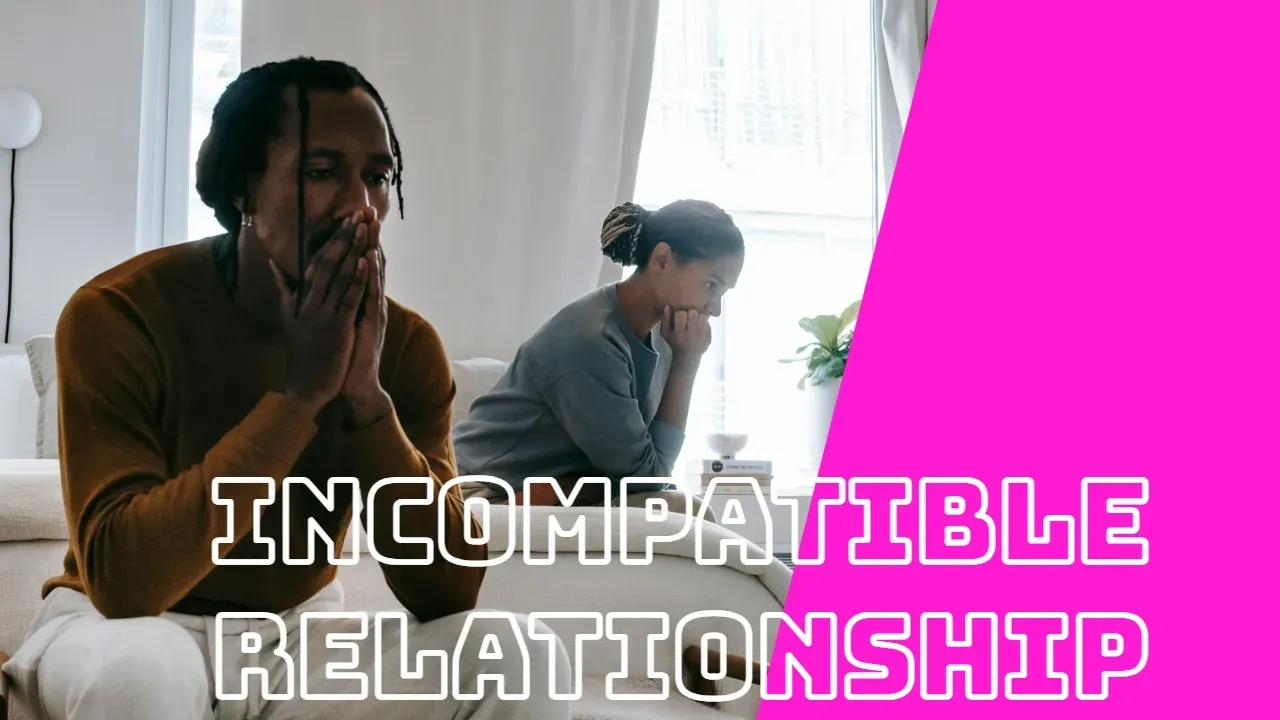Signs of an Incompatible Relationship
Warning Signs of an Incompatible Relationship
Every relationship has ups and downs, but sure warning signs may indicate more profound incompatibility issues. Recognizing these red flags early can save you from prolonged emotional stress and help you make informed decisions about your future together.
Here’s an in-depth look at some common signs of an incompatible relationship.
Lack of Communication
- Avoidance of difficult conversations
- Feeling unheard and ignored
- Difficulty expressing feelings and emotions
Avoidance of Difficult Conversations
Couples in incompatible relationships may avoid having difficult conversations. This avoidance can build up unresolved problems, breeding resentment and distance between partners.
Feeling Unheard and Ignored
Partners in an incompatible relationship may feel unheard and ignored by their significant others. This can lead to feelings of frustration, loneliness, and emotional disconnection.Difficulty Expressing Feelings and Emotions
Mismatched Goals and Ambitions
Compatibility extends to shared life goals. Suppose one partner aspires to travel the world and pursue an adventurous lifestyle while the other prioritizes settling down and building a family. In that case, the disconnect can lead to frustration and discontent.
While compromise is possible, radically different visions for the future often signal incompatibility.
Emotional Disconnect
Feeling emotionally unsupported or misunderstood in your relationship can be a significant red flag. If one partner struggles to empathize, show vulnerability, or reciprocate emotional intimacy, it can create a void. This disconnect often leads to feelings of loneliness, even when you’re physically together.
Different Conflict Resolution Styles
Incompatible conflict resolution styles can exacerbate disagreements. For example, one partner might prefer to address issues immediately, while the other tends to avoid confrontation.
Conflicts can escalate or remain unresolved if these differences aren't reconciled, creating tension over time.
Unequal Effort in the Relationship
A healthy relationship requires balanced effort from both partners. If one person consistently takes responsibility for maintaining the relationship—whether through planning, emotional labor, or compromise—it can lead to feelings of burnout and resentment. Unequal effort is a clear sign that the partnership may not be sustainable.
Lack of Physical Intimacy
While physical intimacy may naturally fluctuate, a persistent lack of affection, sexual intimacy, or physical connection can signal deeper compatibility issues. Intimacy often reflects emotional closeness, and its absence may indicate a gap in understanding or shared desires.
Constant Criticism or Contempt
Incompatible partners may fall into patterns of negativity, where one or both individuals criticize or show contempt for the other. This behavior often leads to feelings of inadequacy, hurt, and defensiveness.
Over time, persistent negativity can erode the relationship's foundation of respect and love.
Trust Issues
Persistent Trust Issues
Trust is the cornerstone of a healthy relationship. Recurring issues with dishonesty, jealousy, or infidelity can erode the foundation of your connection. Constantly questioning your partner’s actions or intentions may indicate a lack of trust, which is challenging to rebuild without mutual effort.
- Suspicion and jealousy
- Lack of transparency
- Dishonesty and deception
Suspicion and Jealousy
Incompatible partners may find it challenging to express their feelings openly. This difficulty can result in miscommunications and emotional barriers within the relationship.Lack of Transparency
Partners in an incompatible relationship may need to be more open and honest, leading to a lack of transparency.Dishonesty and Deception
Incompatible partners may resort to dishonesty and deception to avoid confrontations and difficult conversations. This dishonest behavior only deepens their differences.Misalignment in Important Areas
Conflicting Opinions on Important Issues
Partners in an incompatible relationship may have conflicting opinions on crucial matters like family, finances, and career goals, leading to constant disagreements.Different Goals and Priorities
Incompatible Lifestyles
Couples must engage in open conversations and explore possible compromises to address misalignment. Finding common ground and understanding each other's perspectives can help bridge the gap and create a more harmonious relationship.




